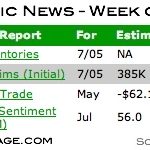It Might Be On Your Radar
As mortgage rates have fallen (and risen) in the past couple of weeks, there are a lot of Iowans considering refinancing their home. I want to go on the record and say, don’t just lock it in and close it. It’s all about timing. If you lock out of emotion (which most loan officers force you to do), you’ll end up paying more than you should.
If you have patience and work with someone that will watch rates for you, you can lock in when rates swing lower. This normally lasts for a couple of hours, but if your lender is watching things closely, they can lock you in.
Basic Questions
With that said, I’ve had many potential clients reach out to me through my blog and ask about what ‘refinancing’ means. It’s not a silly question, it’s not like you learn this stuff in school! So, here’s my ‘Refinancing 101’ blog post. Of course, if you have questions — feel free to contact me.
In general, a mortgage is a contract between a bank and borrower, defining the terms by which a home loan must be repaid.
The paperwork, signed by both parties, includes agreements for things such as:
- The interest rate
- The length of the loan
- The amount of money to be borrowed
But, like all loans, a mortgage loan can be paid off at any time. So, when market interest rates fall, homeowners will often exercise their right to an “early payoff” by securing a new loan that pays off the old one. Often times without any pre-payment penalties (I can help you determine if you have one).
This process is most commonly known as a refinance.
What Is It?
A refinance is the changing of the loan terms against a property, often for a better interest rate or a lower monthly payment. When the refinance process is complete, the original lender’s loan is paid in full using the money from the new lender’s loan and the former’s relationship is officially terminated.
There’s no rule against how many times a person can refinance, nor is there an easy way to determine whether or not a refinance makes sense. In general, if you can reduce your monthly payment while limiting your closing costs, to refinance is a smart decision.
However, there are other reasons to consider refinancing too, including:
- To convert from an ARM (or Adjustable Rate Mortgage) into a fixed rate mortgage (or vice versa)
- To extract equity for paying off third-party debts or for cash
- To extend a loan from 15 years to 30 year for payment relief
Because there are fewer third-parties involved with a refinance, it’s often easier and less expensive than a comparable purchase transaction. The paperwork stack is often smaller, too.
Like I said, right now there are a lot of homeowners considering to refinance. It’s OK. It’s perfectly natural 😉
Don’t Rush It. Work With Someone That Has YOUR Best Interests In Mind.
Just make sure you’re waiting until the ‘bottom’ for mortgage rates. Often times loan officers will rush the process. After all, that is how we get paid. Unfortunately, we don’t get paid when clients ‘wait and see’. However, ultimately it is in your best interest hold off until mortgage rates hit a threshold that you’re comfortable with.
Trust me, it will not be a large window of time, work with someone that knows what they’re doing. There are some extremely talented mortgage professionals in town.







